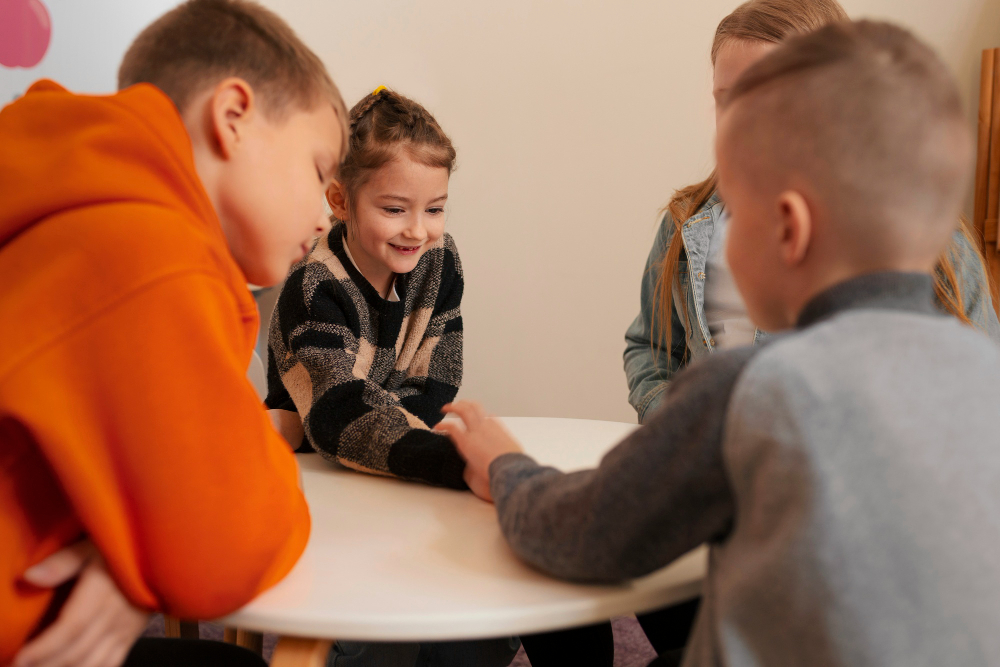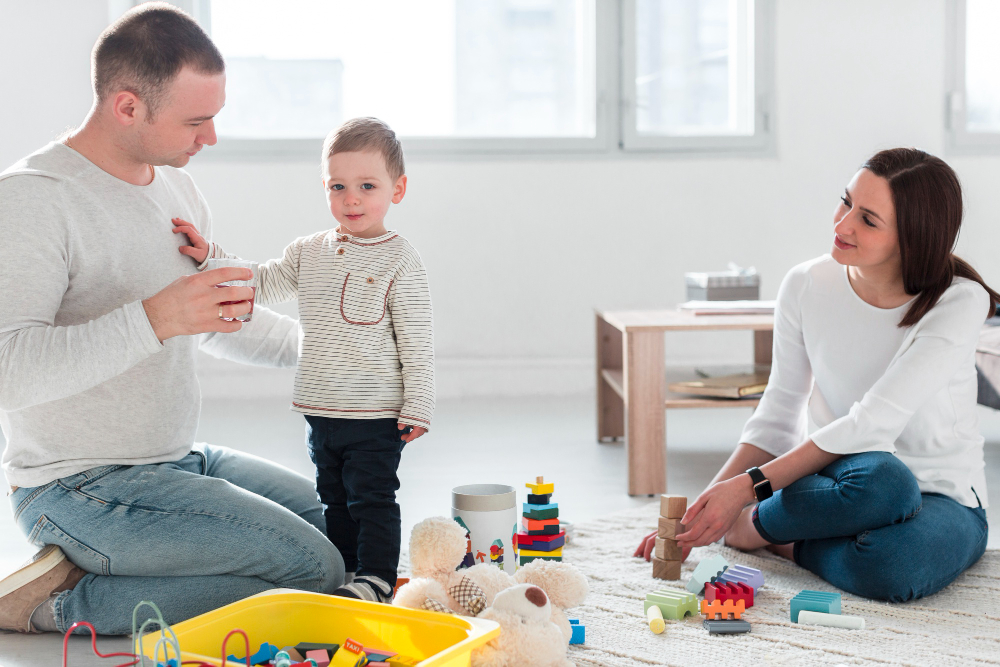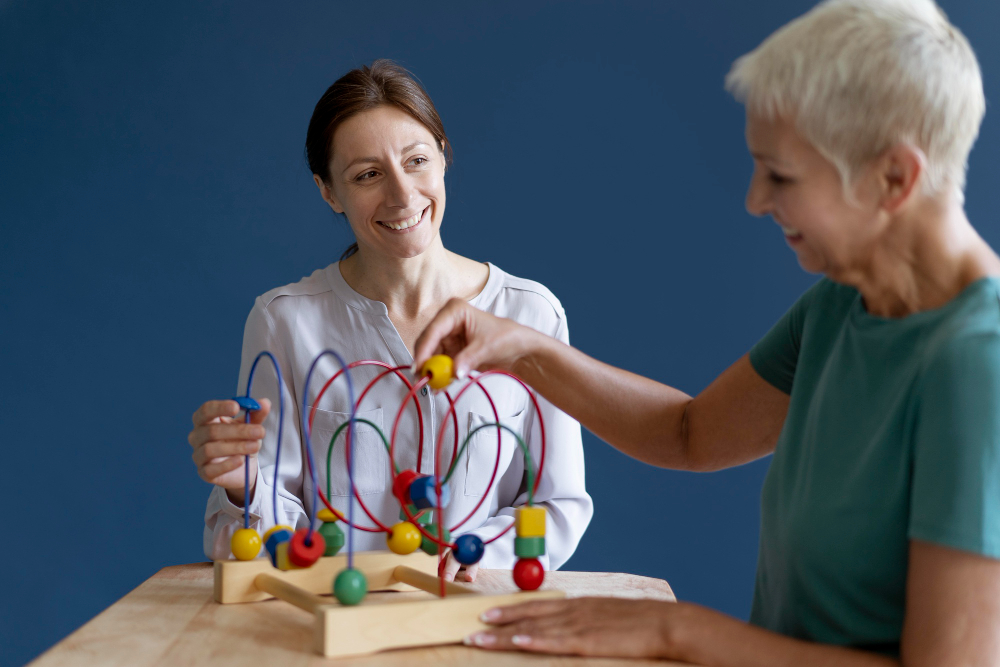Social interaction is a skilful technique to make difficult things or topics easier. Now it can be handled in a lot of different ways. It is one of the crucial processes of generating problem-solving abilities in the minds of desired kids or adults. Facilitating Social Interaction in children is quite challenging which can be treated by various tools & techniques. Let’s crack it: how does social interaction help in the learning of a child?
How Does Social Interaction Enhance Learning Outcomes?
Children develop important abilities beyond academics through social contact. Children learn communication, teamwork, and interpersonal talents, by interacting with peers and adults. Interactions upgrade the level of cognitive growth, problem-solving, confidence, and resilience. Facilitating Social Interaction gives the following features:
- Enhances Communication
- Increases Emotional Control
- Promotes Collaboration
- Gains Problem-Solving Skills
- Building confidence and resilience
Evidence-Based Programs That Promote Social Interaction
Children can improve their social and emotional abilities by participating in several research-supported activities that encourage social contact. Collaboration, self-awareness, and interaction are all encouraged by these programs.
Brick-by-Brick™: Learning Social Skills Through Play
For children ages 5-12 with social challenges, Brick-by-Brick™ provides a hands-on, participatory method for social learning. Play Therapy helps kids build LEGO models in small groups, improving communication and teamwork. Together, they create not simply LEGO creations but also deep social bonds. This helps in Facilitating Social Interaction and naturalising friendships.
PALS: Preparing Young Children for Social Success
Playing and Learning to Socialise (PALS) teaches 4-6-year-olds social skills for school entrance. Puppet shows, narratives, and playing roles help kids learn to greet, take turns, and see emotions. Children feel more competent in groups after these early social encounters, making the transition to school easier.
Superflex®: Becoming a Social Thinker
Superflex® uses superhero-themed exercises to teach reasoning and behaviour flexibility to 7-10-year-olds with self-management and social consciousness issues. Monitoring a child’s behaviour helps them feel more confident in their social skills. This confidence makes interacting with others enjoyable and strengthens their social abilities.
The Incredible Years® Dinosaur School: Enhancing Emotional Competence
School preparation and social-emotional ability are the goals of this early intervention program. Group play and regulated play teach children communication, self-regulation, and problem-solving. Children learn and connect better when they can express themselves and work together.
Westmead Feelings Program: Understanding and Managing Emotions
The Westmead Feelings Program offers social awareness and emotional intelligence to children with modest intellectual disabilities and autism spectrum disorder (ASD). These children are between the ages of 7 and 9. The education system emphasises problem-solving and perspective-taking, which are crucial in Facilitating Social Interaction.
Zones of Regulation: Emotion Management for Social Ability
Zones of Regulation help 6-12-year-olds understand emotions and regulate sensory reactions. Kids learn to manage emotions through photos, role-playing, and video modelling. This program teaches kids with ASD, ADHD, or mood disorders how their behaviour affects others and interactions.
Conclusion
To learn and grow, children need social connections. Children build social confidence through organized and evidence-based programming. Facilitating Social Interaction through play-based learning, role-playing, or controlled group interactions helps youngsters control emotions, communicate, and make lasting relationships. Participating in social skills growth supports every child’s intellectual, emotional, and social growth.





